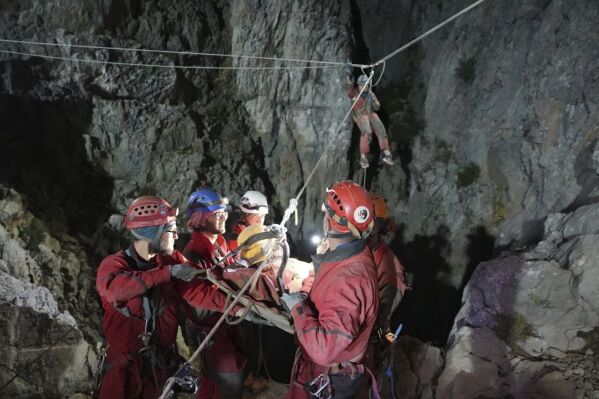EU lawmakers approve a deal to raise renewable energy target to 42.5% of total consumption by 2030
STRASBOURG, France (AP) — European Union lawmakers endorsed a deal Tuesday to raise the share of renewables in the bloc’s energy mix, another step to accelerate its green transition away from fossil fuels.
The bill, adopted by a large majority — 470 lawmakers voted in favor, 120 against and 40 abstained — foresees an updated renewable energy target of 42.5% of total consumption by 2030, with the aim of reaching 45%. The current goal is 32%.
“Today’s vote in the European Parliament clears the way for a massive boost towards the energy transition, in a way that is affordable for citizens and reinforces the EU as an industrial bastion,” said Green MEP Ville Niinistö. “The EU is saying goodbye to fossil fuels in our energy mix. The energy crisis has shown that we must be fully independent of oil and gas, especially from Russia.”
A review by global energy think tank Ember showed that wind and solar generated a record 22% of the EU’s electricity last year and for the first time overtook gas, which accounted for 20%. Coal power accounted for 16%.
 American researcher doing well after rescue from a deep Turkish cave, calling it a ‘crazy adventure’
American researcher doing well after rescue from a deep Turkish cave, calling it a ‘crazy adventure’
 Poland says it won’t lift its embargo on Ukraine grain because it would hurt its farmers
Poland says it won’t lift its embargo on Ukraine grain because it would hurt its farmers
 Norway’s conservative opposition wins local elections with nearly 26% of the votes
Norway’s conservative opposition wins local elections with nearly 26% of the votes
The Parliament said the legislation will also accelerate the deployment of solar panels and windmills since national governments will have to grant permits for new renewable installations within 12 months if they are located in “go-to areas” guaranteeing nature protection at the same time. Outside such areas, the process should not exceed 24 months.
The EU’s legislative body also expects that the deployment of renewables in the transport sector should help reduce greenhouse gas emissions by 14.5% by 2030 through “using a greater share of advanced biofuels and a more ambitious quota for renewable fuels of non-biological origin, such as hydrogen.”
Earlier this year, negotiations between the European Parliament and the European Council were overshadowed by a rift between two groups of countries over the role of nuclear energy in the production of hydrogen.
In the end, the agreement gave nations the possibility of using nuclear technology following a strong push from France.
The bill now only needs formal approval by member countries to take effect.
___
More AP’s coverage of climate and environment at https://apnews.com/hub/climate-and-environment
Disclaimer: The copyright of this article belongs to the original author. Reposting this article is solely for the purpose of information dissemination and does not constitute any investment advice. If there is any infringement, please contact us immediately. We will make corrections or deletions as necessary. Thank you.







